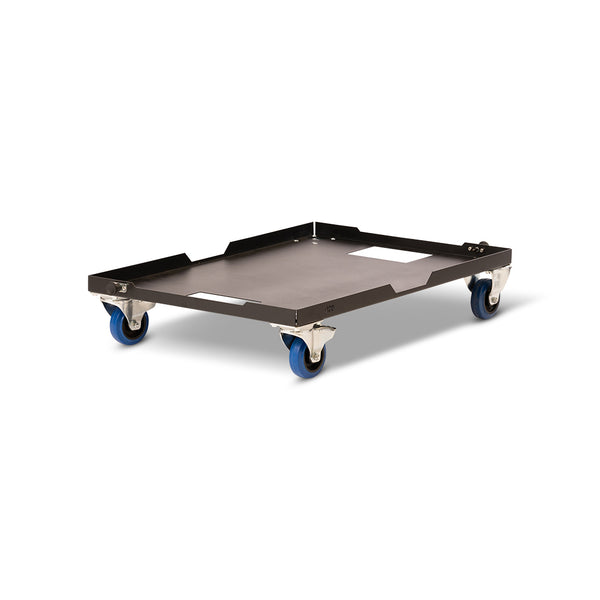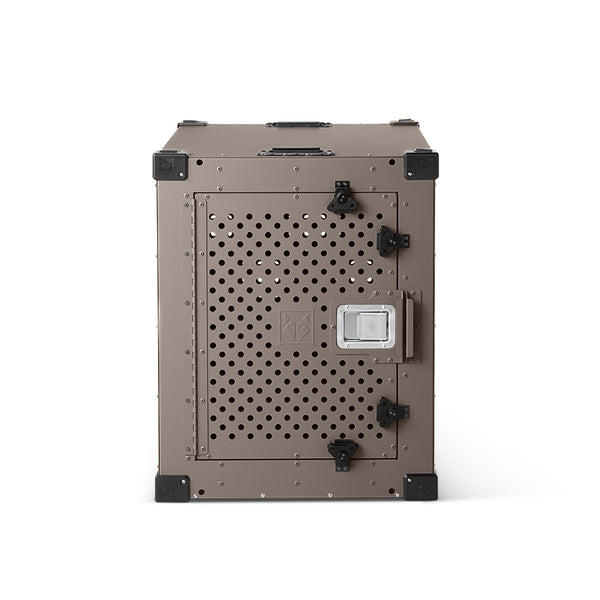Vets place great emphasis on getting dogs and puppies vaccinated. Why? The reason is that vaccinations act as a cornerstone for shielding dogs from various kinds of life-threatening diseases. According to Orchard Vets, all dogs in the UK should be vaccinated against canine hepatitis, distemper, parvovirus, and leptospirosis. Then, according to the Small Animal Surveillance Network (SAVNET), they estimated that of the 659,408 dogs in the database, 80% of the dogs have a record of at least one vaccination in their lifetime.
As a dog parent, you must not take your dog’s or puppy’s vaccination for granted, as drawing and sticking to a well-structured schedule throughout your dog’s stages of life ensures that they will live a long and healthy life. Therefore, if you have been missing out on your pet’s vaccination, then this blog steps ahead to tell you the necessary vaccinations for puppies and adult dogs, recommended schedules as they cross each stage of their life, why the suggested vaccines are important for your furry friend, and much more.
Why Are Vaccinations Important?
Vaccinations are necessary for your dog and your puppy as they expose their immune system to an inactive or weakened form of an agent, such as bacteria or a virus, which causes diseases. This exposure triggers their body to produce antibodies in the shape of specialised proteins that recognise and neutralise the particular pathogen. So, even if your dog gets exposed to a serious disease, its immune system will instantly recall the pathogen, mounting an effective and rapid defense and stopping or reducing the severity.
Hence, you can say that vaccinations are like an “early warning system” for the immune system, preparing your dog’s or puppy’s body to fight against potential threats before they end up causing drastic harm, decreasing your buddy’s lifespan. In short, vaccination is far more effective and less costly than treating a disease if you allow it to enter your pet’s body.
Core vs. Non-Core Vaccines: The Two Vaccine Categories
You will find it fascinating when we tell you that dog vaccines are generally categorized as core vs non-core vaccines. Let us discuss them individually:
Core Vaccines
These vaccines are considered necessary for all dogs, irrespective of their breed, way of living, or geographic location. They keep your dog safe from rapidly spreading and possibly dangerous diseases that pose a risk to the canine community. The core vaccines for dogs offer protection for the following:
Canine Parvovirus
Canine Parvovirus is a super-contagious and usually deadly virus that mainly affects the gastrointestinal system of puppies, resulting in severe vomiting, dehydration, diarrhea, and death.
Canine Distemper
Another serious and usually fatal viral disease, canine distemper, impacts the respiratory, gastrointestinal, and nervous systems of your furry friend. As far as the symptoms are concerned, they can range from fever, coughing, and vomiting to seizures, brain damage and paralysis as well.
Canine Adenovirus
Canine adenovirus is commonly known as hepatitis, meaning inflammation of the liver. Furthermore, it acts as a respiratory disease as well. Vaccination often keeps your dog shielded from both types of adenovirus, CAV-1 and CAV-2.
Rabies
You must be familiar with rabies. It is a fatal viral disease, where the central nervous system of all mammals, including humans and dogs, gets affected. How? This disease is transmitted through the saliva of the infected animals, typically when bitten. The vaccination is usually legally mandated because it carries the potential to spread to humans.
Non-Core Vaccines
At the same time, non-core vaccines are the ones that are given to your dog on the basis of their individual factors, such as their way of living you have provided them, their geographic location, and how often they are exposed to other animals. The requirement for non-core vaccines should not be properly discussed with a veterinarian, so that they can recommend the best course to keep your dog safe in the future as well. This vaccination protects your dog from the following viruses:
Bordetella Bronchiseptica
Kennel Cough
Kennel cough, or Bordetella bronchiseptica, is in the list of highly contagious bacterial infection that causes inflammation of the trachea and bronchi, leading to a dry and hacking cough. This cough is generally not life-threatening, but yes can become uncomfortable and spread rapidly in places where dogs gather or live together closely, such as boarding kennels and dog parks.
Canine Parainfluenza Virus
Non-core vaccines are usually made with canine parainfluenza to prevent kennel cough in your dog or puppy.
Leptospirosis
Leptospirosis is regarded as a bacterial disease. How does it spread? It does so through the urine of already infected animals like wildlife, livestock, and rodents. This can contaminate water and soil too, causing kidney and liver damage in dogs, and you need to watch out, as it doesn't spare humans.
Lyme Disease
Lyme disease is transmitted due to the bite of infected black-legged ticks. The bacterial infection can make your dog and puppy lame, feverish, and experience joint pain and kidney issues in dogs. Apart from that, this vaccine is recommended in regions where Lyme-carrying ticks are in large quantities.
Canine Influenza Virus
Canine influenza virus is a comparatively new respiratory virus. It is known to cause flu-like symptoms in your dogs, so the vaccination may be suggested to you if your dog has frequent social settings and boarding facilities.
Coronavirus (Canine Respiratory Coronavirus)
Don’t mistake it for the virus that causes COVID-19 in humans. The dog version is different and infects your dog’s respiratory system, leading to kennel cough.
Schedule For Puppy Vaccination
Like your small child, even your puppy has an immune system that is more prone to getting infectious diseases, as that is still developing, so they have yet to build competent natural defense mechanisms. Here, maternal antibodies are passed from the mother to the puppies through the placenta and colostrum, meaning the first milk to provide some protection in the initial days, which naturally ends with the passage of time. Hence, there is a series of vaccinations considered necessary during puppyhood so your young fellow is able to establish a lasting and strong immune response.
In the case of puppies, their typical vaccination chart includes a few crucial vaccines that you need to give them in intervals. As a dog owner, you should know that the vaccination needs to begin around 6-8 weeks of age and continue until they hit 16 weeks of age. This approach promises to protect your puppy as their maternal antibodies end and their immune system starts responding more effectively to whatever vaccines are given.
Note down the following schedule so you don’t forget any stage:
6-8 Weeks Old
When your puppy is around 6-8 weeks old, you need to give the following vaccines:
First Distemper, Hepatitis/Adenovirus, Parvo, Parainfluenza
This combination plays a vital role in offering initial protection to your puppies against these core viral diseases and often includes parainfluenza, a part of kennel cough.
Optional: Bordetella
If your puppy is fond of social settings or moving towards boarding, then be ready, as your vet may recommend the Bordetella vaccine at this point.
10-12 Weeks Old
In this age duration, you need to offer the following vaccinations:
Second DHPP
You gave this one when your puppy was around 6-8 weeks, but you need to repeat the dose when your puppy is around 10-12 weeks. This booster dose helps to make their immune response stronger, while guaranteeing protection as the count of their maternal antibodies continues to decrease.
Optional: Leptospirosis
If you think that your puppy falls sick due to environmental factors, then your vet may suggest that you give them the Leptospirosis vaccine. Keep in mind that it is not compulsory for them to have this one, but in case these elements bother your puppy, then go ahead.
14-16 Weeks Old
Here, you must give the following vaccines:
Third DHPP
The third round of DHPP is also seen as the final booster in the puppy series. Don’t miss the third dosage at any cost because it is important for laying the foundation for long-term immunity against the core and contagious viral diseases
Rabies
It’s time to give your puppy a rabies vaccination, although you need to check out the local regulations, as that determines the exact timing.
Optional: Leptospirosis
If your vet began the Leptospirosis vaccine, then the second dose will be given now.
Optional: Lyme Disease
If you belong to a Lyme-prone place, meaning there are lots of black-legged ticks, then you will have to begin the first dose of the Lyme vaccine to add a layer of protection.
Optional: Canine Influenza Virus
Your vet will recommend the first dosage of canine influenza virus based on your lifestyle.
Some Important Considerations For Puppy Vaccinations
Before rushing to give your puppy their necessary vaccinations, you need to keep some of the following considerations in mind:
Begin On Time
Please, understand that it is critical for you to begin the vaccination series at the recommended age of your puppy. Why? Because that will keep your little one safe earlier, or else you might regret it.
Complete the Series
You need to complete the vaccination series for your puppy. Make sure you don’t miss out on any dosage and the recommended booster doses in the initial series to build their strong and lasting immunity. If you skip the important boosters, then you have just made them vulnerable, and that is really not a good sign. Therefore, be careful on your end.
Follow Your Veterinarian's Guidance
Your vet knows better, so you need to follow their guidance. Yes, your puppy’s vaccination schedule may vary depending on the existence of any local diseases, individual health and risk factors, but they know what will suit your puppy and best for creating their immunity stronger.
Socialization
As you wait for your pup’s vaccination series to get completed, don’t assume that you have to keep them isolated from other people and dogs. You need to continue to begin socialization in environments that you believe are safe and controlled. In this way, they can turn into well-adjusted adults. So, discuss the strategies for your vet so your puppy feels like they are part of society.
Vaccine Protection For Dogs
After completing the vaccination series for your puppy, you need to move ahead in getting the stronger versions for your dog now. They will demand booster vaccinations in intervals in order to maintain their immunity and be able to go everywhere with you. Yes, the number of times the booster needs to be given depends on the particular vaccine, the dog’s lifestyle, and local regulations.
Follow this guideline to remain up-to-date with your dog’s vaccination schedule:
DHPP Booster
The DHPP booster has to be administered every 1-3 years, depending on the specific vaccine that you used, based on your vet’s recommendation. Some of them are licensed to be used in three-year intervals after the initial series for your puppy and a one-year booster.
Rabies Booster
Rabies booster frequency is usually determined by local laws and the kind of rabies vaccine used. You need to offer a rabies booster to your dog every 1-3 years. But, please read the regulation as it is important for your awareness, and you don’t end up going against it.
Bordetella Booster
The Bordetella booster largely depends on your dog’s risk of exposure. For instance, if your dog frequently boards kennels, you take them a casual stroll in the park, avail groomer’s facilities, or participate in dog shows, then that is a strong indication for you to protect them with this particular booster every 6-12 months.
Leptospirosis Booster
This one is given on an annual basis if your dog is at risk of exposure.
Lyme Disease Booster
Lyme booster is administered annually, especially in Lyme-endemic areas.
Canine Influenza Virus Booster
If your dog is at risk, then a canine influenza virus booster may be recommended annually.
What Factors Influence Dogs’ Vaccination Schedules?
You will be surprised to know that there are several factors that influence your pet’s vaccination schedule. What are those? Let’s unveil:
Lifestyle
The number one factor is your dog’s lifestyle. How much time do they spend outdoors? Are they interactive with other dogs? Do you travel with them with their diseases? If so, then yes, your dog may require frequent non-core vaccinations.
Geographic Location
The existence of certain diseases in your dog varies on the basis of geographical locations as well. Therefore, allow your vet to draw a vaccination schedule, keeping the particular dangers in your surroundings.
Age and Health Status
Vaccinations are typically safe, but vets avoid taking risks with dogs, who are born with medical conditions. If the same is the case with your dog, then your vet might suggest other recommendations; therefore, don’t overlook your dog’s health condition, as the vaccine might result in negative consequences.
Type Of Vaccine
Different vaccinations are made with different formulations, and that again may have different durations of immunity, impacting the recommended intervals of the boosters. Therefore, see what your vet says regarding this.
Local Regulations
For rabies, time and again, it is being said that you have to see what the local laws of your area ask you to follow. Therefore, avoid doing anything on your own and update yourself with the laws before giving them the rabies initial vaccine or the booster, too.
Regular Veterinary Check-Ups: Why Are They Necessary?
Regular veterinary check-ups are necessary for the following reasons:
Receives A Comprehensive Health Check-Up
Appointments for vaccination serve as ideal opportunities for your puppy and dog to receive a comprehensive health check-up.
Vet Can Carefully Examine
During your follow-up visits, your vet can carefully examine your dog’s entire health. You are free to discuss any of your dog’s behaviour that you find unusual. So, the vet can tell you whether there is something problematic or not.
Create A Personalized Vaccination Schedule
One of the best parts about these visits is that your vet can create a personalized vaccination schedule based on their individual requirements and what they are vulnerable to, ending your worries that your dog’s immune system will be and remain fine.
Common Concerns Regarding Vaccination
We understand that, like other dog owners, you might have some concerns about the side effects of vaccination. Let us clear it up for you, your dog can experience mild and temporary side effects such as soreness, a little fever, or exhaustion. The serious consequences are quite rare, hence you need not worry about them.
Furthermore, if you weigh the positives and negatives of the vaccination, then you will say that the benefits are way more. However, you can still discuss your concerns with your vet. They can guide you better and tell you how to deal with the situation. Again, don’t do anything on your own and keep following the doctor’s instructions.
Maintain Your Dog’s Vaccination History
You need to maintain your dog’s vaccination history. You never know, you may be asked to show the documents at boarding kennels, dog groomers, airports, and even if there is any disease outbreak. Therefore, make sure it's available and handy too.
Conclusion
Now that you know about the vaccination schedules for dogs and puppies, kindly follow them if you want to see your pal healthy and fit.






